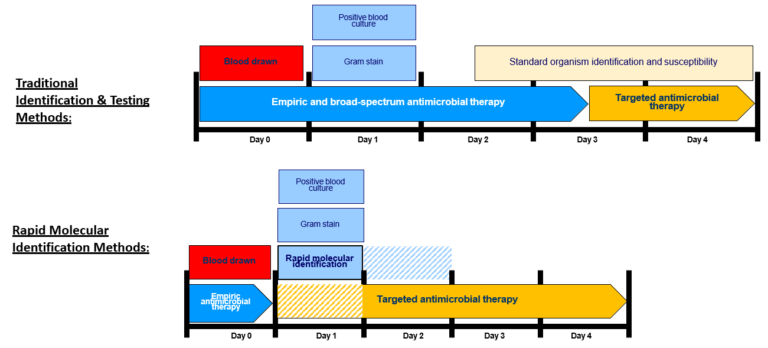Home / Healthcare & Medicine / Antimicrobial & Antibiotic Resistance / Syndromic Testing and Antimicrobial Stewardship / Linking Syndromic testing and AMS
This article is from the free online
Syndromic Testing and Antimicrobial Stewardship


Reach your personal and professional goals
Unlock access to hundreds of expert online courses and degrees from top universities and educators to gain accredited qualifications and professional CV-building certificates.
Join over 18 million learners to launch, switch or build upon your career, all at your own pace, across a wide range of topic areas.

 Organism Identification and Initiation of Targeted Antimicrobial Therapy: Traditional versus Rapid Molecular diagnostics for bloodstream infection –
Organism Identification and Initiation of Targeted Antimicrobial Therapy: Traditional versus Rapid Molecular diagnostics for bloodstream infection – 

